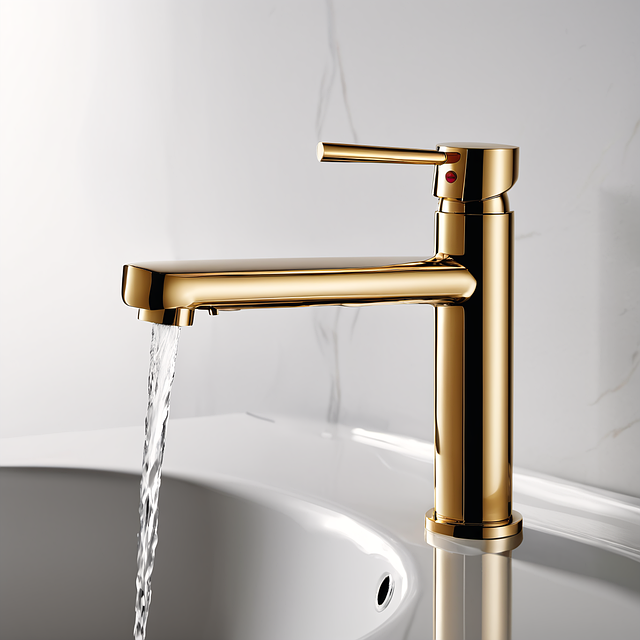When installing, repairing, or maintaining gas lines for stoves or heating systems within homes or commercial spaces, it is essential to hire a professional plumber. These experts ensure the gas lines meet all safety standards and local building codes, selecting appropriate piping and ensuring accurate measurements and secure, leak-proof connections. Plumbers strategically place shut-off valves for maintenance and emergency situations, calibrate systems for optimal performance, and conduct pressure tests to confirm the integrity of the gas lines. Their role is critical in preventing hazardous gas leaks and guaranteeing a safe and efficient operation of appliances. With their technical skills, regulatory knowledge, and use of advanced tools and technology, plumbers navigate complex installations with precision, addressing any issues swiftly to ensure operational efficiency and enhance safety. Engaging a certified plumber for such tasks is crucial for the longevity and functionality of your gas line system.
When integrating gas-powered appliances into your home or business, understanding the intricacies of gas line installation is paramount. This comprehensive guide delves into the essentials of installing gas lines for stoves and heating systems, emphasizing the critical role of a skilled plumber in ensuring safety and compliance with local regulations. From selecting appropriate pipes and fittings to adhering to stringent safety protocols, we cover all aspects of the process. Learn about the best practices for maintenance and inspection, how to address common issues, and what to budget for a professional installation. This article also includes a case study highlighting expert plumbing services, frequently asked questions, and a conclusion that underscores the importance of reliable gas line systems for your daily operations and safety.
- Understanding Gas Line Installation for Stoves and Heating Systems
- The Role of a Professional Plumber in Gas Line Projects
Understanding Gas Line Installation for Stoves and Heating Systems

When embarking on a project that involves installing gas lines for stoves or heating systems, it is imperative to engage with a professional plumber who possesses the expertise necessary to ensure safe and efficient operation. A plumber skilled in this task will assess the layout of your home, determine the optimal path for gas line installation, and adhere to local building codes and regulations. This includes selecting appropriate gas pipes that meet safety standards, measuring precise lengths, and utilizing specialized tools to cut and join pipes without leaks. The plumber will also install shut-off valves at strategic points along the line for future maintenance or emergency situations.
Furthermore, the plumber’s role extends beyond mere physical installation; they must carefully calibrate and pressure-test the gas lines to confirm they are both functional and secure. Proper sealing at all connections is crucial to prevent any gas leaks, which could pose a significant safety risk. The plumber will also ensure that the gas supply to your stove or heating system is regulated appropriately to maintain consistent performance. This meticulous process underscores the importance of professional expertise in gas line installation, guaranteeing that your appliances operate safely and effectively, providing warmth and cooked meals as intended.
The Role of a Professional Plumber in Gas Line Projects

When it comes to gas line projects for stoves or heating systems, the expertise of a professional plumber is indispensable. These trained specialists possess the necessary skills and knowledge to safely install, repair, and maintain gas lines, ensuring compliance with local codes and regulations. Their role involves meticulous planning to determine the optimal route for gas pipes, taking into account the building’s structure, existing utility layouts, and the required gas flow specifications. A professional plumber conducts a thorough inspection of the site to identify potential hazards or obstructions that could interfere with the installation process.
Safety is paramount in any gas line project, and it is here that the role of a professional plumber becomes critical. They are equipped with advanced tools and technology to detect leaks, pressure test lines, and perform leak-proof sealing at all connection points. Their commitment to adhering to industry standards and utilizing high-quality materials ensures the reliability and longevity of the gas line system. Additionally, their experience allows them to address any unforeseen challenges that may arise during the project, providing homeowners and businesses with peace of mind and a seamless experience. Trusting a certified plumber for such intricate tasks not only guarantees efficiency but also safeguards the property against potential gas leaks, which can be hazardous and lead to significant damage or injury.
When considering the safe and efficient installation of gas lines for stoves or heating systems, it’s clear that enlisting the expertise of a professional plumber is paramount. Their knowledge and skill ensure compliance with safety standards and regulations, providing peace of mind and uninterrupted comfort in your home. By understanding the intricacies of gas line installation through the insights provided in this article, homeowners can make informed decisions, ensuring their cooking and heating needs are met without compromise. For reliable and professional plumbing services for gas line installations, trust the experts who prioritize safety and functionality, guaranteeing a seamless experience from start to finish.
